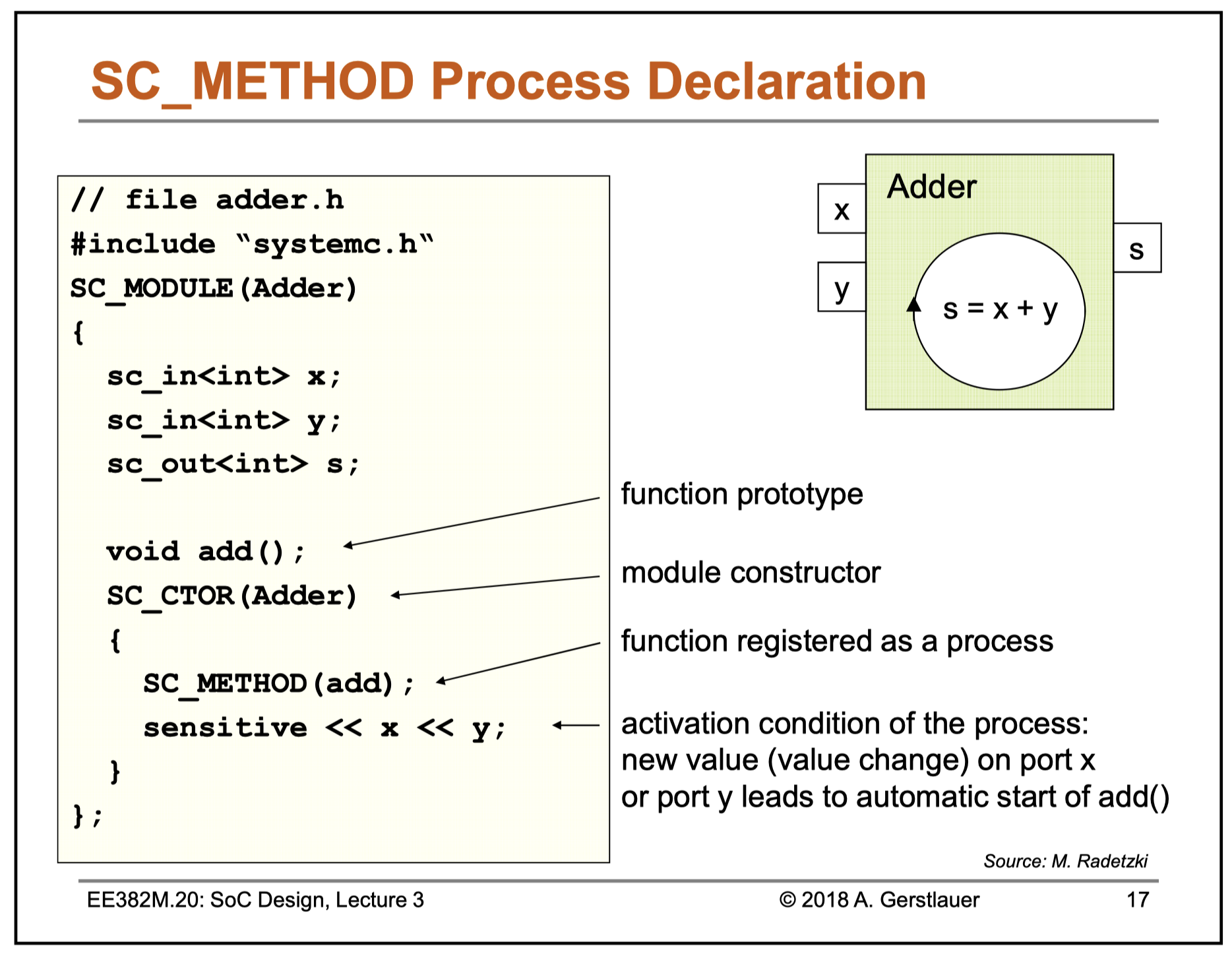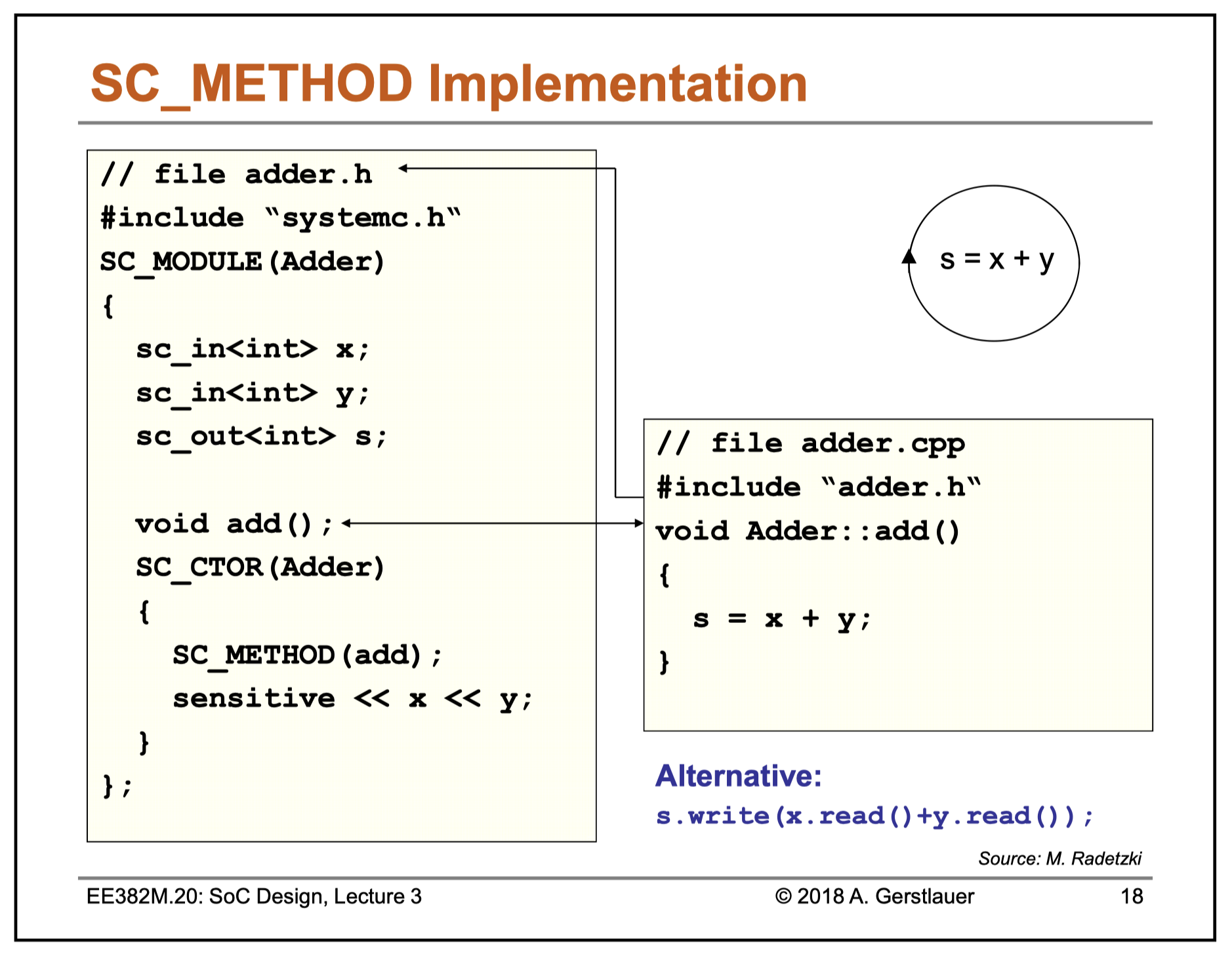SystemC 14 Process - Method


Method
- may have static sensitivity.
- only a method process, may call the function
next_triggerto create dynamic sensitivity. - cannot be made runnable as a result of an immediate notification executed by the process itself, regardless of the static sensitivity or dynamic sensitivity of the method process instance.
next_trigger()
- is a member function of class
sc_module, a member function of classsc_prim_channel, and a non-member function. - can be called from:
- a) a member function of the module itself,
- b) from a member function of a channel, or
- c) from any function that is ultimately called from a method process.
NOTE
- any local variables declared within the method process will be destroyed on return from the process. Data members of the module should be used to store persistent state associated with the method process.
Recall the difference between SC_METHOD and SC_THREAD
-
SC_METHOD(func): does not have its own thread of execution, consumes no simulated time, cannot be suspended, and cannot call code that calls wait() -
SC_THREAD(func): has its own thread of execution, may consume simulated time, can be suspended, and can call code that callswait()
Code
1
2
3
4
5
6
7
8
9
10
11
12
13
14
15
16
17
18
19
20
21
22
23
24
25
26
27
28
29
30
31
32
33
34
35
36
37
38
39
40
41
42
43
44
// Learn with Examples, 2020, MIT license
#include <systemc>
using namespace sc_core;
SC_MODULE(PROCESS) {
SC_CTOR(PROCESS) { // constructor
SC_THREAD(thread); // register a thread process
SC_METHOD(method); // register a method process
}
void thread() {
int idx = 0; // declare only once
while (true) { // loop forever
std::cout << "thread"<< idx++ << " @ " << sc_time_stamp() << std::endl;
wait(1, SC_SEC); // re-trigger after 1 s
}
}
void method() {
// notice there's no while loop here
int idx = 0; // re-declare every time method is triggered
std::cout << "method" << idx++ << " @ " << sc_time_stamp() << std::endl;
next_trigger(1, SC_SEC);
}
};
int sc_main(int, char*[]) {
PROCESS process("process");
sc_start(4, SC_SEC);
return 0;
}
// Result:
// first triggered during initialization
method0 @ 0 s
// first triggered during initialization
thread0 @ 0 s
// re-triggered by next_trigger()
method0 @ 1 s
// re-triggered by wait()
thread1 @ 1 s
method0 @ 2 s
thread2 @ 2 s
// "idx" doesn't accumulate
method0 @ 3 s
// "idx" increases upon every trigger
thread3 @ 3 s